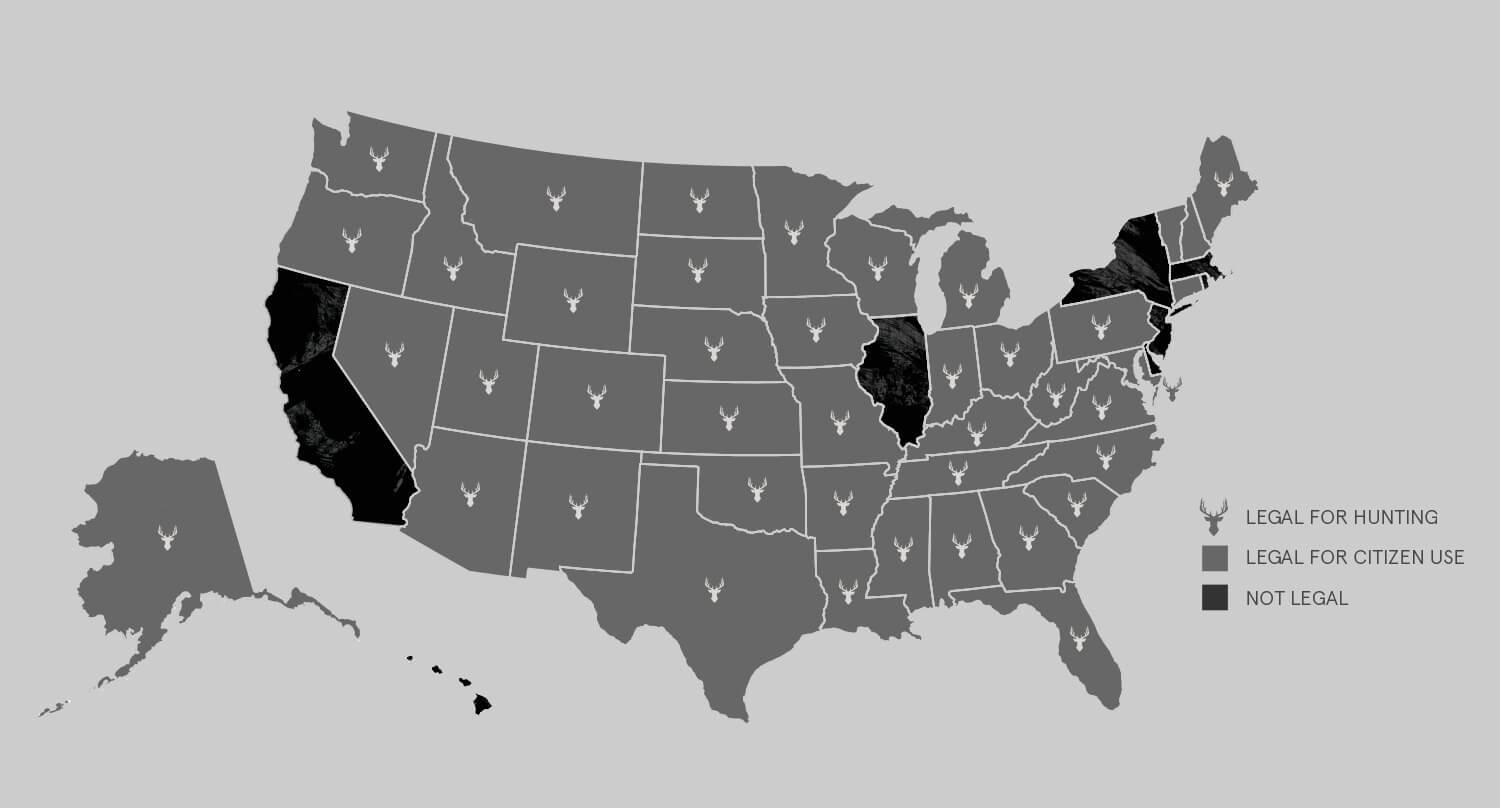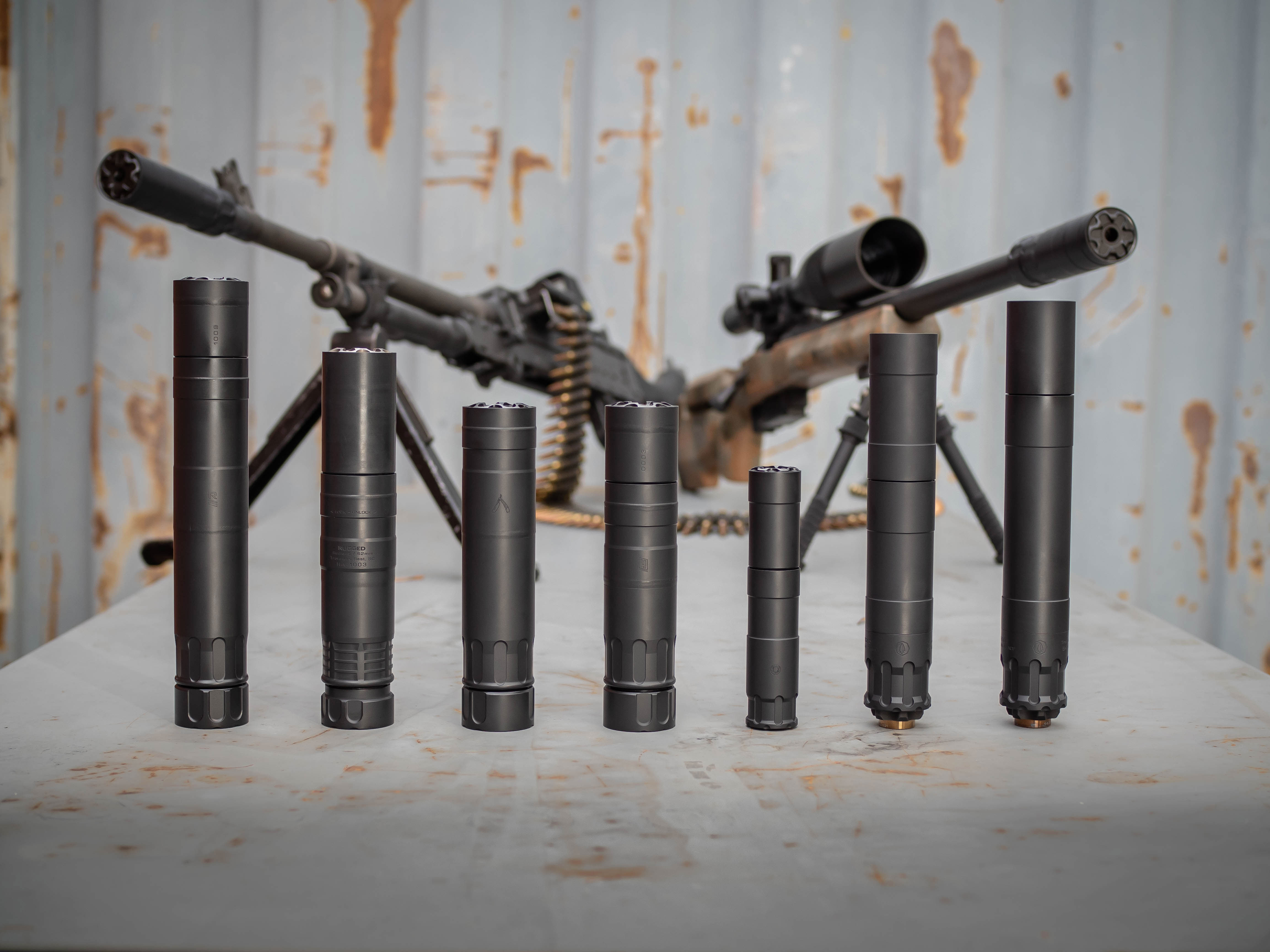Are suppressors legal in Colorado? This is a question that's been buzzing around the firearms community, and trust me, it's not as straightforward as you might think. Suppressors, often referred to as silencers, have been a topic of debate for years. Whether you're a gun enthusiast or just curious about the legalities surrounding these devices, you're in the right place. Let's dive into the nitty-gritty details and uncover the truth behind suppressors in Colorado.
Now, before we get all technical and start throwing around legal jargon, let's set the stage. Suppressors are more than just cool gadgets for your firearm; they're tools that can enhance shooting experiences while reducing noise pollution. But here's the deal—just because something seems cool doesn't mean it's legal everywhere. Colorado has its own set of rules, and we're here to break them down for you.
So, buckle up because this ride is going to take us through the history, current laws, and practical applications of suppressors in Colorado. By the end of this, you'll be armed with knowledge that'll make you the go-to person in your shooting group. Let's get started!
Read also:Temporary Replacement 3hyungry Your Ultimate Guide To Finding The Best Substitutes
Here's a quick guide to help you navigate through this article:
- The History of Suppressors
- Colorado Laws on Suppressors
- The Purchase Process
- Benefits of Suppressors
- Common Misconceptions
- Types of Suppressors
- Legal Considerations
- Owning a Suppressor in Colorado
- Future Trends in Suppressor Laws
- Conclusion
The History of Suppressors
Suppressors have been around longer than most people think. They were first invented in the early 1900s by a guy named Hiram Percy Maxim. Yep, that's right—he wasn't just some random dude in a garage; he was the son of the guy who invented the Maxim machine gun. Talk about family legacy!
Back in the day, suppressors were marketed as a way to make hunting more humane and reduce noise pollution. They weren't seen as these super secretive tools for spies or bad guys. Over time, though, perceptions shifted, and suppressors started getting a bad rap in movies and TV shows. But here's the kicker—they're not as sneaky as Hollywood makes them out to be.
Evolution of Suppressor Laws
Fast forward to today, and the laws surrounding suppressors have evolved quite a bit. Initially, the National Firearms Act (NFA) of 1934 slapped some heavy regulations on suppressors, making them harder to get. But as public opinion started shifting, more states began allowing suppressor ownership. Colorado, being the progressive state it is, jumped on board too.
Colorado Laws on Suppressors
Alright, let's talk Colorado. Are suppressors legal in Colorado? The short answer is yes, but there's a catch. Suppressors fall under the NFA, which means you can't just waltz into a store and buy one without going through a bit of red tape.
In Colorado, suppressors are regulated under federal law, but the state doesn't impose any additional restrictions. This means that as long as you follow the federal guidelines, you're good to go. But hey, don't just take my word for it—let's break it down further.
Read also:Julian Edelman Family A Closer Look At The Nfl Stars Personal Life
State-Specific Regulations
Colorado doesn't require any extra permits or fees beyond what the federal government demands. However, it's crucial to remember that local laws might vary, so always double-check with your county or city regulations. You don't want to get caught off guard, right?
The Purchase Process
Buying a suppressor in Colorado isn't as scary as it sounds. Sure, there are steps to follow, but with a little patience, you'll be good to go. Here's how the process works:
- Form 4 Submission: You'll need to fill out an ATF Form 4, which is basically the paperwork that says, "Hey, I want to buy a suppressor."
- Fingerprinting and Background Check: Yep, the government wants to make sure you're not up to no good. So, you'll need to submit your fingerprints and go through a background check.
- Tax Stamp: This is the fun part—paying the $200 tax stamp fee. Think of it as a small price to pay for owning a cool piece of gear.
- Approval: Once everything checks out, the ATF will approve your application, and you're all set!
Benefits of Suppressors
So, why should you even bother with a suppressor? Well, aside from the obvious cool factor, there are some pretty solid benefits:
- Hearing Protection: Suppressors significantly reduce the noise of a gunshot, making it easier on your ears and those around you.
- Improved Accuracy: Less noise means less flinching, which translates to better accuracy. Who doesn't want that?
- Environmental Considerations: By reducing noise pollution, suppressors are kinder to wildlife and your neighbors.
Common Misconceptions
Let's clear up a few myths about suppressors while we're at it:
Myth 1: Suppressors make guns completely silent. Nope, not even close. They reduce noise, but you'll still hear a pretty loud bang.
Myth 2: Suppressors are only for criminals. False! Most suppressor owners are law-abiding citizens who just want to enjoy shooting responsibly.
Setting the Record Straight
These misconceptions have been floating around for years, but the reality is that suppressors are just tools like any other. It's all about how you use them.
Types of Suppressors
Not all suppressors are created equal. There are different types designed for specific firearms and uses:
- Rifle Suppressors: Built for larger calibers and higher velocities.
- Pistol Suppressors: Smaller and lighter, perfect for handguns.
- Shotgun Suppressors: Yep, they exist! Designed to handle the unique challenges of shotgun shells.
Legal Considerations
When it comes to owning a suppressor, there are a few legal things to keep in mind:
- Transportation: Always keep your suppressor securely locked up when transporting it.
- Storage: Proper storage is key to staying on the right side of the law.
- Usage: Make sure you're using your suppressor in a legal manner, such as hunting or target shooting.
Owning a Suppressor in Colorado
Once you've gone through the purchase process, owning a suppressor in Colorado is pretty straightforward. Just remember to stay informed about any changes in the law and always follow best practices for safe handling and storage.
Building a Suppressors Community
There's a thriving community of suppressor enthusiasts in Colorado. Joining local clubs or online forums can be a great way to learn more and connect with fellow enthusiasts.
Future Trends in Suppressor Laws
As public opinion continues to shift, we might see even more states loosening their suppressor laws. Colorado has been a leader in this movement, and it's exciting to think about what the future holds.
Potential Changes
Some advocates are pushing for the elimination of the tax stamp fee, which could make suppressors more accessible to the average shooter. Only time will tell, but it's definitely something to keep an eye on.
Conclusion
So, are suppressors legal in Colorado? Absolutely! With the right knowledge and a little patience, you can join the ranks of responsible suppressor owners in the Centennial State. Remember to always follow the rules, stay informed, and enjoy the benefits that suppressors bring to your shooting experience.
Now that you're armed with the facts, why not share this article with your fellow gun enthusiasts? Together, we can spread the word about the truth behind suppressors and help dispel those pesky myths. Happy shooting, and stay safe out there!


